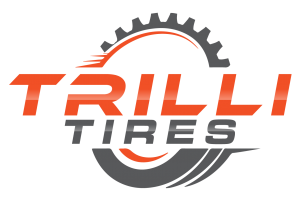When it’s time to replace your vehicle’s tires, making an informed choice is crucial for safety, performance, and long-term satisfaction. With numerous options available, understanding key factors will help you choose the right tires for your needs. Here’s a comprehensive guide on what to consider when buying tires.
1. Tire Type
Selecting the correct tire type is fundamental. Here are the main types you might consider:
- All-Season Tires: These are designed to perform well in various weather conditions, including light snow. They offer a balance between performance and comfort, making them ideal for regions with moderate climates.
- Summer Tires: Engineered for high performance in both dry and wet conditions, summer tires provide superior handling and braking. However, they are not suitable for icy or snowy conditions.
- Winter Tires: Specifically designed for extreme cold and snow, winter tires feature deeper treads and softer rubber compounds that enhance grip on icy roads. They are essential for areas with severe winter weather.
- All-Terrain Tires: For those who frequently drive off-road, all-terrain tires offer durability and traction on rugged surfaces while still being suitable for highway driving.
- Performance Tires: These tires offer enhanced handling and cornering capabilities, ideal for sports cars and high-performance vehicles. They may come with trade-offs in terms of ride comfort and longevity.
2. Tire Size
Choosing the right tire size is crucial for maintaining vehicle safety and performance. You can find the tire size information on the sidewall of your current tires or in your vehicle’s owner’s manual. The size is typically represented by a combination of numbers and letters, such as P215/60R16.
- Width: The first number represents the tire’s width in millimetres from sidewall to sidewall.
- Aspect Ratio: The second number indicates the height of the tire’s sidewall as a percentage of the width. A lower number means a shorter sidewall, which often enhances performance but may reduce comfort.
- Construction: The letter following the aspect ratio (usually “R” for radial) denotes the tire’s internal construction. Radial tires are the most common and are known for their durability and comfort.
- Diameter: The last number represents the diameter of the wheel rim in inches that the tire fits.
3. Tread Pattern and Depth
The tread pattern affects traction, handling, and noise levels. When buying tires, consider:
- Symmetrical Tread Patterns: These are common and provide a quiet and comfortable ride, suitable for most driving conditions.
- Asymmetrical Tread Patterns: These offer enhanced performance by providing better grip and handling in various conditions, including wet or dry surfaces.
- Directional Tread Patterns: Designed to channel water away from the tire, these patterns improve traction in wet conditions and are often used in high-performance tires.
Tread depth is also important. A deeper tread provides better grip and longer wear, whereas a shallower tread may be more suited for dry conditions but can reduce traction in rain or snow.
4. Tire Performance and Longevity
Tire performance can vary based on factors like tread life, fuel efficiency, and ride comfort. Review tire ratings and warranties provided by manufacturers to gauge expected performance. High-quality tires generally offer better longevity, improved fuel efficiency, and enhanced driving comfort.
- Tread Life: Check the manufacturer’s warranty for tread life. Most tires come with a warranty that covers a specific mileage range.
- Fuel Efficiency: Tires with lower rolling resistance can improve fuel efficiency by reducing the energy needed to keep the vehicle moving.
- Ride Comfort: Consider tires designed to offer a smoother and quieter ride, especially if you frequently drive on rough or uneven roads.
5. Weather and Driving Conditions
Your local weather and driving conditions play a significant role in buying tires that are right for you. For instance:
- Hot Climates: If you live in a hot climate, tires with heat-resistant properties can help prevent premature wear.
- Rainy or Snowy Conditions: Opt for tires with specialized tread patterns and rubber compounds designed for wet or snowy conditions if you frequently drive in such environments.
- Off-Roading: If you enjoy off-roading, choose tires with rugged tread patterns and reinforced sidewalls to withstand rough terrains.
6. Tire Brand and Price
Brand reputation and price can influence your tire choice. Established brands often provide better quality and reliability. While it might be tempting to go for cheaper options, investing in high-quality tires can improve safety, performance, and longevity.
- Reputation: Research and read reviews about tire brands to understand their performance and reliability.
- Price: Consider your budget but remember that higher-priced tires may offer better performance and durability. Balance cost with quality to make a sound investment.
7. Professional Installation and Maintenance
Proper installation and regular maintenance are essential for maximizing the lifespan and performance of your tires. Ensure your tires are installed by a professional and have them balanced and aligned to avoid uneven wear and handling issues.
- Balancing: Balancing your tires helps prevent vibrations and uneven wear.
- Alignment: Regular wheel alignment ensures proper tire contact with the road, improving handling and extending tire life.
- Rotation: Regularly rotating your tires helps distribute wear evenly and extends their lifespan.
Buying the right tires involves careful consideration of various factors, including tire type, size, tread pattern, performance, and your specific driving conditions. By paying attention to these details, you can ensure optimal performance, safety, and comfort for your vehicle.
For expert advice and top-quality tire options, visit TrilliTires in Richmond Hill. Our knowledgeable team is here to help you find the perfect tires for your needs and ensure they are installed to the highest standards. Contact us today to get started!
